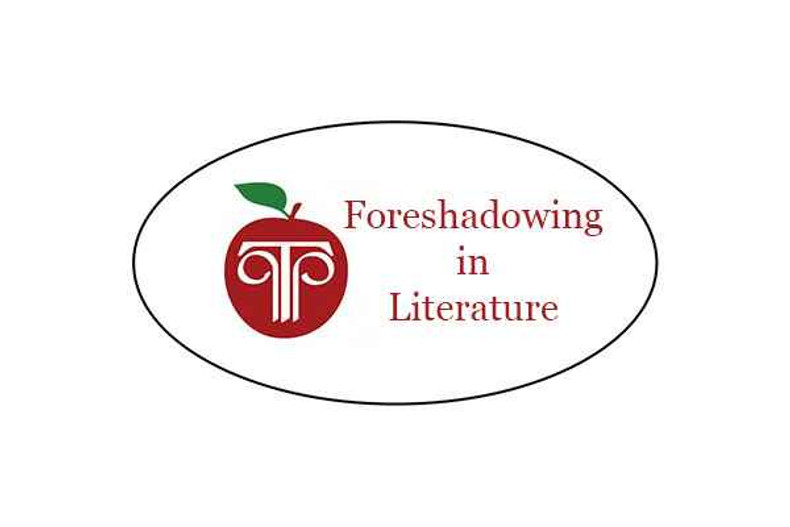Being a terrible writer of fiction myself, I've always admired authors who are able to craft their stories with close attention to details, using literary devices like foreshadowing. We typically think of mystery novels as being laden with foreshadowing, which they certainly are, but clever and talented authors of works in other genres use it as well.
Often the use of this important literary device is overlooked until we get to the end of the story, when we realize we had been given clues to the outcome all along but simply didn't recognize them as such. "Oh, yeah," we think, "I should have seen that coming!"
That, in a nutshell, is why studying the literary device of foreshadowing is so very important: students need to learn how to recognize and consider the significance of clues that could predict outcomes.
This is a skill that will serve them well in ordinary daily life, in their relationships, and in their careers.
A Current Events Example
We just had an election for the President of the United States, which exemplifies this point exactly. The world was shocked that a businessman with no political experience and with a high degree of negative opinions towards him was elected as the President. People are shocked when an outcome is totally unexpected. Yet, as the political analysts look back over the campaign trail, there were clues that were either ignored or brushed off as unimportant, clues that, if interpreted correctly, would have made the outcome less of a shock.
Broader Implications
Finding clues, evaluating them, and making predictions is a basic method of scientific study, an essential sequence in marketing, a crucial process in investing, and a highly recommended way of understanding (and managing) our relationships with each other. How many people do you know who are shocked and bewildered when a relationship breaks up; yet, in retrospect, they sadly look back and say, "I should have seen it coming."
Why Literature Is A Great Conduit For Learning These Skills
We, as teachers of literature, have the unique and special ability to help students learn the basic skills of finding clues, interpreting them, and predicting outcomes in a way no other teachers do. Yes, the science teacher can teach the process of analyzing data to predict outcomes. The math teacher can teach statistics and probability. Coaches can teach plays and strategies, offensive and defensive moves. But where can students practice finding clues in daily life? Where can they practice interpreting people's words and actions? The answer is simple: in literature.
In literature, there is life. In literature there are relationships. In literature there are events. In literature, there are plot lines to predict and outcomes to expect or be shocked by.
Fiction is sort of a "safe zone" (for lack of a better term) where we can comment freely on the people and events--because they are not "real," even though they reflect real life. As teachers of literature, we can pick the stories we present to our students. We can choose works rich in literary devices, such as foreshadowing, to "set up" the opportunity to find and evaluate clues and to make predictions. We can show students how to look in depth at events, at words, at characters, at settings and more, to help students learn to see the subtle clues, the hints--all the things that will help predict the outcomes.
Foreshadowing is a literary device that comes in many forms: in words or conversations, in the setting, in the appearance of particular characters at particular times, in events, in symbols, and more. Although that makes foreshadowing a little hard to exactly define, this broad scope gives us a big playing field on which to help students develop important analytical skills. And helping students to develop important analytical skills is precisely why studying foreshadowing is so important.




